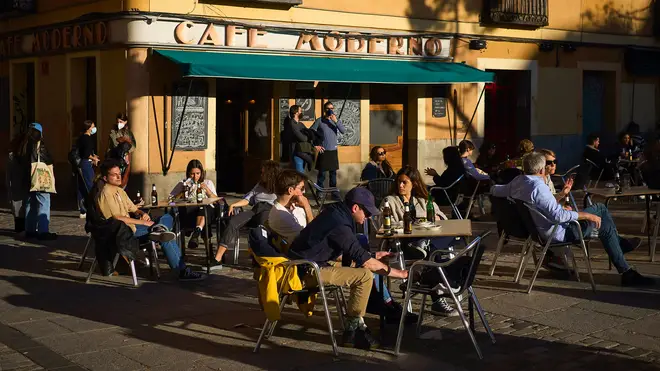
Richard Spurr 1am - 4am
27 March 2021, 17:51 | Updated: 27 March 2021, 19:12

Spain has announced plans to trial a four-day working week using money from the EU’s coronavirus recovery fund.
A three-year pilot project among companies interested in the idea will use €50 million (£36 million) from the fund.
The money will compensate some 200 companies as they resize their workforce or reorganise production workflows to adapt to a 32-hour working week.
READ MORE: When can I travel to Spain and will I need a vaccine passport?
It will go towards subsidising extra costs accrued by the employers in the first year of the trial, and then reduce the government's aid to 50% and 25% each consecutive year, according to a blueprint by the Mas Pais progressive party, which is behind the initiative.
The only condition is that the readjustment leads to a real net reduction of working hours while maintaining full-time contract salaries, explained Hector Tejero, who represents Mas Pais in the Madrid regional assembly.
Mr Tejero said: "It's not using the European funds for Spaniards to work less - it's about seeing how we can improve productivity and competitiveness of our companies."
Arguments in favour of the move also cite benefits for the overall economy.
A mass shift to a three-day weekend would lead to more consumption, especially in entertainment and tourism, a backbone of the Spanish economy.
Reducing work hours from 40 to 35 per week in 2017 would have resulted in a 1.5% GDP growth and 560,000 new jobs, a study published earlier this year in the Cambridge Journal of Economics found.
Salaries would have also increased nationally by 3.7%, especially benefiting women who more often take part-time jobs, the research said.
Software Delsol, in southern Spain, invested €400,000 (£290,000) last year to reduce working hours for its 190 employees and has since then reported a 28% reduction in absenteeism, with people choosing to go to the bank or see their doctor on their weekday off.
Their sales increased last year by 20% and no single employee has quit since the new schedule was adopted.
Critics say, with a pandemic-shaken economy, it is not the best time for the trial.
With a 10.8% GDP contraction last year - its worst since the Civil War in the 1930s - Spain has suffered from intermittent lockdowns and the near-total freeze in international travel.
Some experts say the priority should be fixing the country's labour market, marred by one of the highest unemployment rates in Europe and precarious low-paid jobs.